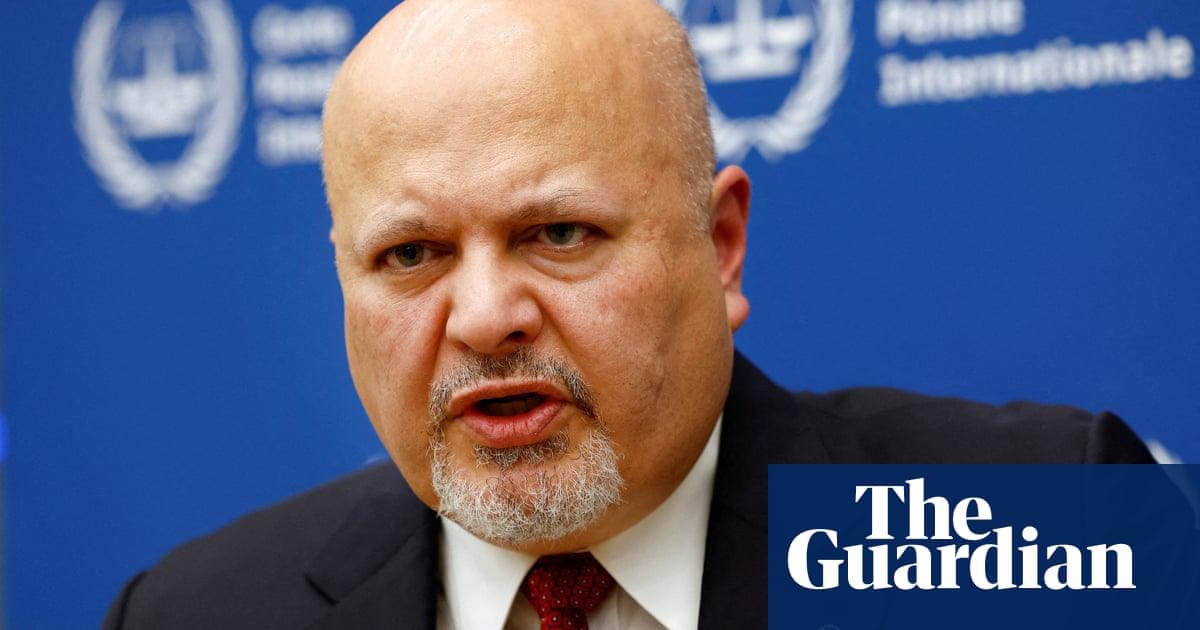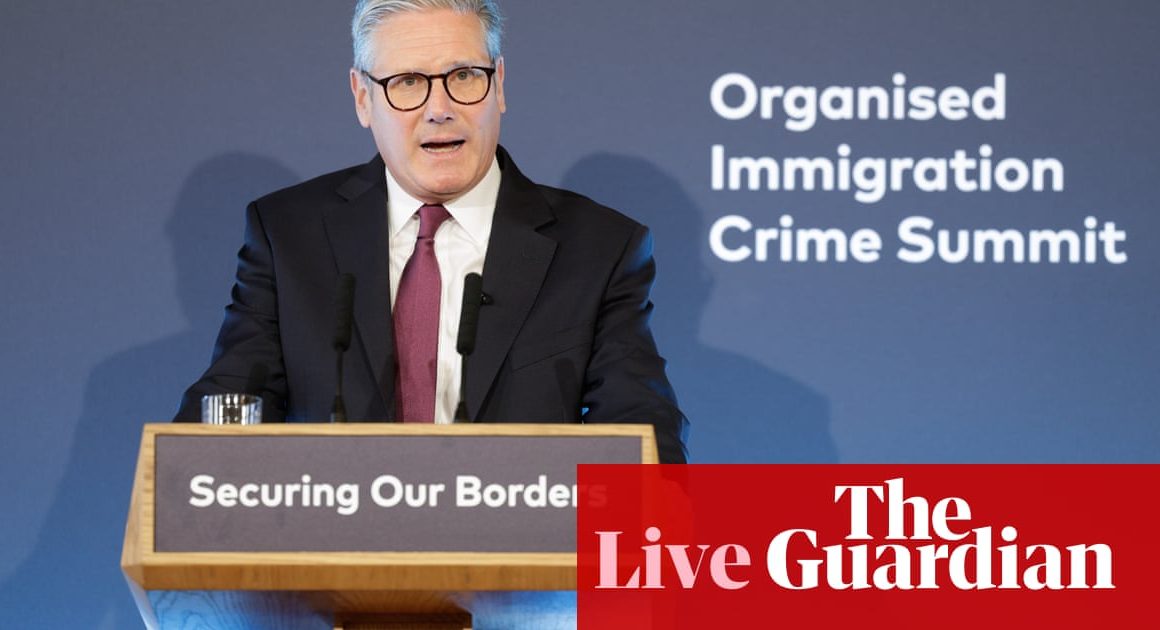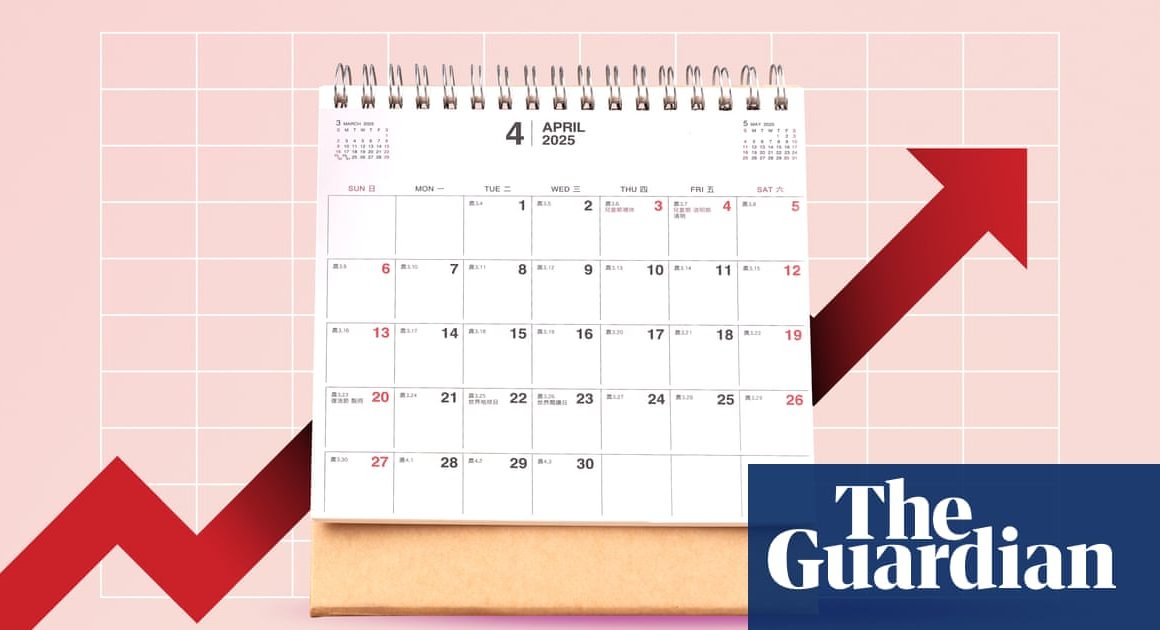The chief prosecutor of the international criminal court allegedly responded to a formal complaint of sexual misconduct by trying to persuade the alleged victim to deny the claims, the Guardian has been told.
Multiple ICC staff with knowledge of the allegations against Karim Khan said the prosecutor and another official close to him repeatedly urged the woman to disavow claims about his behaviour towards her.
The alleged attempts to deter the woman from formally pursuing the claims took place in phone calls and in person, and came after Khan learned court authorities had been made aware of allegations of misconduct, four sources said.
At the time, the chief prosecutor had been advised to avoid one-on-one contact with the alleged victim after an aborted internal inquiry into the matter.
Contacted by the Guardian for comment, Khan denied asking the woman to withdraw any allegations. His lawyers said: “Our client denies the whole of the allegations and we are most concerned the exposure of a confidential and closed internal matter is designed to undermine his high-profile ongoing work at a delicate time.”
After reports of alleged sexual misconduct began to circulate in the media in recent days, Khan denied the claims in a public statement that said he and the court had been “subject to a wide range of attacks and threats”. In anonymous briefings, court officials close to the prosecutor have suggested he may have been the target of a smear campaign.
“There is no truth to suggestions of such misconduct,” Khan’s statement said. “I have worked in diverse contexts for 30 years and there has never been such a complaint lodged against me by anyone.”
The woman at the heart of the allegations – who ICC colleagues describe as a well-regarded lawyer in her 30s who worked directly for Khan – has declined requests for comment.
But multiple sources familiar with the situation said she told colleagues she declined the alleged requests to disavow the claims. She believed the alleged approaches by Khan and another ICC official were part of an attempt to make her say that the claims against the prosecutor had been fabricated, the sources added.
According to a document seen by the Guardian, the accusations against Khan, 54, include unwanted sexual touching and “abuse” over an extended period of time. They include an alleged incident in which he is said to have “pressed his tongue” into the woman’s ear. Khan denies such allegations of misconduct.
Four ICC sources familiar with the allegations said they also include coercive sexual behaviour and abuse of authority.
The Guardian has interviewed 11 current and former ICC officials familiar with the case, as well as diplomatic sources and friends of the alleged victim. All declined to be identified because they were not authorised to discuss the allegations, or because they wanted to protect the woman.
Multiple sources said misreporting about the allegations and efforts to politicise the situation have been deeply distressing for the woman, who is said to have initially held back on pursuing a complaint against Khan over concerns about reprisals, and fears it could be exploited by Israel or opponents of the court.
Sources who know the alleged victim said she has been left traumatised by the situation and is “experiencing severe emotional distress”.
“She never wanted any of this,” one person close to her said. “But the complaint filed against her wishes, followed by Khan’s denials and attempts to suppress the allegations, have forced her into a very difficult position.”
The public emergence of the allegations comes at an intensely sensitive moment for the ICC, a court of last resort that prosecutes individuals accused of atrocities.
A panel of three ICC judges is weighing politically explosive requests by Khan to issue arrest warrants for Israeli leaders for alleged war crimes and crimes against humanity committed in Gaza.
The ICC, which is headquartered in The Hague, now faces an unprecedented crisis amid growing internal strife over the handling of the allegations and apparent attempts by the court’s opponents to weaponise them.
Critics of the court have seized upon the allegations, which Khan first learned about weeks before his decision in May to request arrest warrants for the Israeli prime minister, Benjamin Netanyahu, his defence minister and three Hamas leaders.
Khan has stopped short of explicitly accusing Israel of being behind the allegations, but in his statement denying misconduct he noted that he and the court have been the target of “a wide range of recent attacks and threats” in recent months.
The Guardian revealed earlier this year how Israel’s intelligence agencies ran a decade-long campaign against the ICC that included threats and attempts to smear senior staff. Against this backdrop, ICC officials close to Khan are strongly hinting the allegations may be part of a smear campaign by Israel.
However, in a months-long investigation into the allegations against Khan, the Guardian has found no evidence that Israel, or any other country, had any involvement in the underlying allegations – although there does appear to have been a subsequent effort by anonymous actors to brief journalists and post leaks online.
Online leaks
Last week, as leaks about Khan’s alleged conduct began to appear, press reports and social media posts minimised and misconstrued the allegations, according to sources familiar with the alleged victim’s accounts.
References to allegations contained within a report by a so-called “whistleblower”, they said, included inaccuracies. Several media organisations received, and then published, the same incomplete information.
The Guardian can reveal a more detailed picture of the allegations and of the complex sequence of events that ultimately led to aspects of the claims leaking online and into the pages of rightwing media outlets.
According to three sources familiar with the situation, the allegations of sexual misconduct relate to Khan’s behaviour towards the woman between a period of approximately April 2023 and April 2024.
“The allegations do not relate to a single or a couple of incidents, but misconduct taking place over a period of several months,” one ICC source said.
The alleged victim told colleagues that, after initial concerns about how Khan had sought to hold her hand while on a work trip in London, the prosecutor is alleged to have made repeated attempts to initiate unwanted sexual contact.
The alleged incidents are said to have escalated over time and occurred in his office at the ICC’s headquarters, in hotel rooms on overseas work trips, as well as at his home in The Hague.
Three sources said the woman reported to colleagues detailed descriptions of alleged unwanted sexual touching, including occasions when Khan would allegedly grope her and put his tongue in her ear.
According to an ICC document describing the allegations, she reported that she tried to make excuses to avoid being alone with Khan, but attempts to distance herself from him would lead to negative consequences in the workplace.
After returning from an overseas work trip with the prosecutor in April, the woman spoke in confidence to two close colleagues after they noticed she was upset and gave a detailed account of Khan’s alleged conduct.
The alleged victim told colleagues at the time that she was reluctant to pursue a formal complaint as she feared that doing so could have negative consequences for her, her family and the work of the international court.
Within days of confiding in the two colleagues, however, Khan and the ICC’s independent oversight mechanism (IOM), a watchdog that investigates alleged misconduct, had been made aware of the claims.
Khan was told one evening in early May that serious allegations would soon be shared with the IOM when a small group of staff from his office approached him, according to multiple people familiar with the events.
The meeting, which took place at Khan’s home in The Hague, occurred without the woman’s knowledge or consent. “The alleged victim was kept in the dark,” one source said.
Investigation
Three days after Khan was given advance warning of the allegations, IOM investigators hastily summoned the alleged victim to a hotel in The Hague, informing her they had received a report of alleged misconduct.
According to a record of the meeting, the woman told investigators she had been blindsided by their approach and had serious concerns about their handling of the situation.
ICC sources said the alleged victim had previously expressed concerns about the competence of the IOM, a body that was not wholly trusted by female staff at the court.
Two days after meeting with the alleged victim, the IOM decided against opening a full investigation into the claims. The body recently said in its annual report the woman “declined to pursue a formal complaint” even after it was suggested an investigation could be “referred to an external entity”.
However, records relating to the investigation seen by the Guardian suggest the woman agreed to meet the IOM for a second time, shortly before investigators closed the matter. An external investigation was not offered at that stage, the records suggest.
In a recent statement about the IOM investigation, the court’s governing body said that, following a conversation with the alleged victim, “the IOM was not in a position to proceed with an investigation at that stage. Measures to safeguard everyone’s rights were recommended”.
Two sources said those recommendations, which were sent to Khan in writing, included that he minimise contact with the woman and avoid spending time with her alone, at night or while travelling on work trips.
However, after the alleged victim returned to work, the prosecutor discussed the situation with her in several in-person meetings and calls, sources said. Another official within his office also encouraged her to distance herself from the claims, telling her that Khan was “very scared” and “nervous” the allegations would eventually leak.
Between May and September, according to three sources, Khan and the other official close to him encouraged the alleged victim to write a letter disavowing the allegations against Khan.
At one stage, the official is said to have told her that if she wrote such a letter it would normalise her working relationship with the prosecutor. He allegedly advised her to state in writing: “I have never said this. He never assaulted me”.
The official is understood to dispute the suggestion he discussed the matter with the alleged victim. Lawyers for Khan also denied the episode. “We confirm that neither our client, nor any person acting on his behalf, or who reports to him, asked for any such letter to be written, nor did they ask the person to withdraw any allegations,” they said.
“Our client has fully complied with internal processes and allowed these matters to be handled in an impartial manner by authorities independent of him.”
‘New theory’
Last week, the Wall Street Journal’s editorial board, which adopts a conservative and pro-Israel line, published a leak of information about the allegations based on the questionable “whistleblower” report that has been circulated to media.
The newspaper speculated on what it called “a new theory”: that Khan sought arrest warrants against Netanyahu to divert attention from sexual misconduct allegations that threatened to precipitate his resignation.
One ICC official with knowledge of the ICC’s Palestine investigation described that suggestion as “inaccurate”. Another well-placed source pointed out that the key decisions to seek arrest warrants for senior Israeli and Hamas figures had already been made by the time Khan was informed of the misconduct complaint.
By that stage, the source said, applications for the warrants were already in the process of being drafted.
Multiple current and former ICC officials expressed concerns that Israel and its allies would seek to exploit the controversy surrounding the embattled chief prosecutor, with little regard for due process for the woman at the centre of the situation.
Many staff within the court are understood to be supportive of Khan’s decision to request the arrest warrants and applauded him for asserting the independence of the court in the face of significant political pressure.
But many in the same workforce also have deep concerns about the accusations he is facing and of the court’s handling of the situation. Last week, the ICC’s staff union called for a “prompt, independent investigation led by an external panel free from any potential conflict of interest.”
Khan has said he would be willing, if asked, to cooperate with a new inquiry.
In a statement, a spokesperson for his office added: “It is essential, in particular in the context in which the [prosecutor] is presently operating, that any reports of this nature are addressed in a formal independent process, protecting the rights of all persons.”
On Friday, the Associated Press reported the woman at the centre of the allegations is now in touch with the assembly of states parties (ASP), the court’s governing body which has the ultimate say about Khan’s future. A diplomatic source said the ASP had yet to initiate a new investigation.
That investigation may be the next step in the process, resulting in Khan facing a second formal inquiry that would be expected to question the prosecutor and alleged victim about the allegations, and conduct other investigative work, prior to reaching any conclusion about Khan’s innocence or guilt.
In a statement issued last week, the ASP’s president, Päivi Kaukoranta, said “any reports of misconduct are taken very seriously”. She asked people to respect the integrity and confidentiality of internal processes, “including any further possible steps as necessary”.












